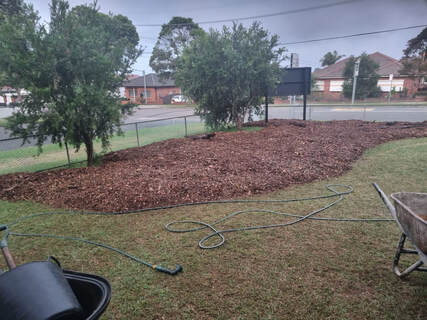 Reflection I gave at Gymea-Miranda Uniting Church on Sunday 17 March 2024 John 12:24 Very truly, I tell you, unless a grain of wheat falls into the earth and dies, it remains just a single grain; but if it dies, it bears much fruit. I think that the climate catastrophe is the greatest challenge we are facing in the world and that includes the church. Everything, everyone, all of life, all of us; are being affected now by climate change and we will feel greater and greater effects in the future. Just as all of life is connected, I also think all life is connected to God. Our faith is not separate from what is going on in the world. We cannot put church over here and world over there. The climate and the cross of Christ are connected. All is connected. All is cross connected. Today, Hye Kyoung has asked me speak about · Ministry with Campsie, Earlwood, and Clemton Park Congregations, our engagement with people in the local multicultural community and the wonderful volunteers that work with us in Christ’s mission. As I reflected on my vision, on what we are doing in Campsie Earlwood Clemton Park and why we are doing it, I came up with lots of words beginning with the letter ‘C’ but I have settled with three ‘C’ words on which to base what I want to say this morning: Climate Cross Connections All my life I have had a deep need for connection. Growing up I felt very disconnected from people, even from my family and from life. I yearned for connection yet felt so disconnected, so alone. Then when I finally responded to the call of Jesus to take up my cross and follow, I began to experience connections grow with God, with people, with all creation. I remember doing street evangelism in Ireland and always feeling that there was a disconnection between the Gospel, as we were presenting it, and the people we were presenting it to. I often felt more connected to the people on the streets than to the Christians I was with. I wanted to connect with the people on a deeper level and have always thought that much of what goes on in church life has little to do with either the Gospel or the world in which we live. For me the Cross is all about connections. The cross connects us to God and connects us to each other (symbolism of Christ’s outstretched hands). In the cross of Christ, I find hope for the world, even for the greatest challenge of climate catastrophe. St Paul reminds us of this in Romans 8 ‘that the creation itself will be set free from its enslavement to decay and will obtain the freedom of the glory of the children of God. We know that the whole creation has been groaning together as it suffers together the pains of labour and not only the creation, but we ourselves, who have the first fruits of the Spirit, groan inwardly while we wait for adoption, the redemption of our bodies.’ In the cross, Jesus is the grain of wheat that falls into the earth and dies, and because Jesus dies, Jesus bears much fruit. In our dying to self, there is a connecting to all things, a connecting to greater things, to God, to all people. When we pass from the old life into the new life of the resurrection there is an awakening, an awareness, all people are my sisters and brothers, I am one with creation. Taking up our cross means taking a lowly path where we meet the suffering peoples of this world, where we being to ask questions of our world. Why is this happening? What is causing it? Who is benefiting from it? We begin to see the rampant effects of Capitalism, Consumerism and Colonisation all around us on the first nations people, on the climate, and on producing social inequality, famine, people seeking refuge, housing unaffordability around the world etc. So, at the heart of what I believe is the cross connecting us to everything and everyone. Reconciliation is so important for me: reconciliation with God, reconciliation with others, reconciliation of enemies, reconciliation with the first nations peoples of this land, reconciliation with the earth, reconciliation with all creation. 2 Corinthians 5:18,19 ‘All this is from God, who reconciled us to himself through Christ and has given us the ministry of reconciliation; that is, in Christ God was reconciling the world to himself, not counting their trespasses against them, and entrusting the message of reconciliation to us.’ As I carry the cross and see the climate catastrophe that is befalling us, my vision helps shape what I do and what shapes our congregation and community at Campsie Earlwood Clemton Park. We share Campsie property with Galilee Korean Congregation with whom we have made a property sharing agreement. We also share it with a Chinese congregation (Australian Cross International Church) who work with us in running our weekly drop in and daily food distribution service. As well as helping people, food rescue is about recycling, reducing and reusing. Caring for the earth. We also have an Indonesian bible study group, a Nepalese cultural group teaching language and dance to their young people, a Chinese Opera Choir and four days a week the Australian Nursing Home Foundation uses the property to run a day care for older Chinese and Vietnamese people. Currently we receive $960 per week or $50,000 per year from them alone. The nursing home foundation are not seen as a source of income alone but as partners as people we collaborate with in serving the people of Campsie who are mainly of Chinese background. Indeed, all these groups are people we collaborate with in mission. Because of our increase in income and support through grants (because of the engagement we have with so many cultural groups) we are finally installing our commercial kitchen after 5 five years of planning. At Earlwood we are making a property and mission sharing agreement with Beth Eden Indonesian congregation who are a Pentecostal congregation and have been part of Georges River Presbytery for over 30 years. We hope to make an agreement with the United Church of Tonga who have been associated with Clemton Park for over 30 years also. They currently look after the property and are very involved in our food distribution and Drop In and in creating our native plant garden and yarning circle where we hope to create connections with our local community. We are engaging indigenous elders to lead us in listening to the land. It is my hope that an urban colonised people will learn to listen to the earth and begin to redress our treatment of the earth and restore the earth’s climate. For me the key word in mission is collaboration. Through all the connections I have made I am collaborating in some way to make a better world. As our congregations and community cultural groups collaborate, we create a powerful energy. We achieve far more than we could do on our own as a congregation. The weight of maintaining properties is shared, finances increase, more people are engaged, mission is increased, goals are set higher, more initiatives are attempted because there is more energy, more people, more vitality. What I have described is ‘Working interculturally’ Intercultural describes communities in which there is a deep understanding and respect for all cultures. Intercultural communication focuses on the mutual exchange of ideas and cultural norms and the development of deep relationships. In an intercultural society, no one is left unchanged because everyone learns from one another and grows together. Much of the work is done by the community rather than the congregation. Many of our wonderful volunteers do not attend our churches nor any churches. One person texted me this week and said, ‘I think of the food distribution activity as my time at church.’ This person no longer attends a church but is so integral to the life of our congregation/community. To me she worships God through her service of others. She has laid her life down, like a grain of wheat that has fallen into the earth, her continual dying to self in her service of others is bearing much fruit. I am very thankful for all the people that make up our collaborating connected community.
0 Comments
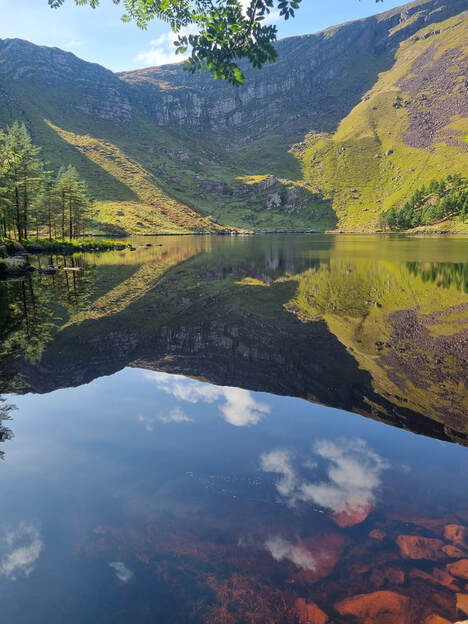 This has been a difficult week thinking about what I will preach about this Sunday. What can one say as a terrible violence erupts in Palestine, the home of Jesus, a person of love and peace, of reconciliation and healing? How does our hearing of one of his obscure parables about the kingdom of heaven relate to this kingdom of hell destroying bodies and lives, tearing families and communities apart and spilling blood and spewing out bodies? How do I prepare to preach when a simple recognition of our aboriginal and islander sisters and brothers has been hijacked by so much misinformation, confusion, ignorance and racist rhetoric? As I prepare my reflection, I realise that whatever the outcome of the referendum on giving our first nations sisters and brothers recognition in the Australian constitution, or whether peace or continued violence occurs in Palestine; we as followers of Jesus must go deeper into soul to find strength and life, faith and hope and love; and from these deep wells of salvation share the water of life with our neighbours. No matter how much violence and hatred, no matter how much racism masquerading as truth and facts, no matter how many disappointments and betrayals occur in the world or impact our lives, we have to respond with love. For out of the slim and weak efforts to love, faith and hope will eventually return and blossom. The kingdom life is all around us, hidden like God but near. St. Paul reminds us in Philippians 4:4,5 Rejoice in the Lord always; again I will say, Rejoice. Let your gentleness be known to everyone. The Lord is near. God open our eyes to see it. God open our minds to perceive it. God open our hearts to live it with love. God strengthen us to walk in your kingdom. The people wandering in the desert slowly towards the promised land made a golden calf. They wanted a god they could see. They wanted a god who was with them, to whom they could go when in trouble. But it was a god they had made themselves with their own hands. We have our gods today too, gods in which we can trust, gods we can see: our weapons of war, we trust in them to find our way, to be victorious over our enemies, to confirm to ourselves that our god is bigger than their god. Today it is easier to listen to the principalities and powers, as they peddle their fear, misquotes and twisted truth through social media and media owned by people who make billions from untruth, than it is to wait and seek and trust a God of grace and love. Perhaps the words of Paul in today's lectionary reading will help us focus our faith, hope and love in the coming days. Philippians 4:8,9 Finally, beloved, whatever is true, whatever is honourable, whatever is just, whatever is pure, whatever is pleasing, whatever is commendable, if there is any excellence and if there is anything worthy of praise, think about these things. Keep on doing the things that you have learned and received and heard and seen in me, and the God of peace will be with you. As I prepare this reflection, without knowing the referendum result, I focus on these words knowing that in many ways the world is not getting better, the principalities and powers of this world have such a hold on us, even on the church. So, we turn again to whatever is true, honourable, just, pure, pleasing, commendable, things of excellence, things worthy of praise, good things, kind things, soulful things and we look to God unseen, mysterious, wise. We look beyond all our human made gods, seeking God beyond all our human constructions and ideas of God, seeking God higher, lower, wider, deeper; leaving behind and putting aside our prejudices (at least growing aware of our prejudices) ever seeking the love that flowed through Jesus' life; hoping, praying that abundant life might be found on earth by all, after all; the life Jesus speaks about in the perplexing parables Jesus tells about a kingdom of love. 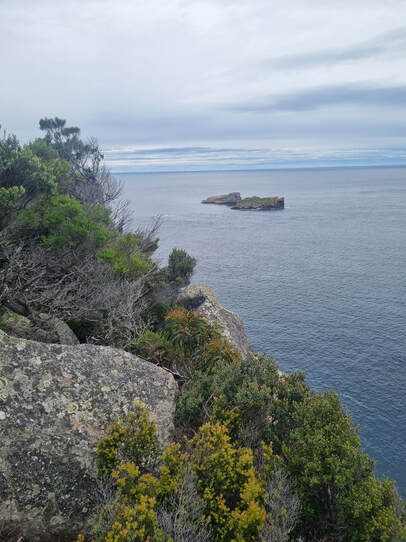 John 9:1-41 Pain, Hope and Vision In their book ‘Holy Conversations - Strategic planning as a Spiritual Practice for Congregations’, Gil Rendle and Alice Mann say that there are three sources of energy for mission planning: Pain, Hope and Vision. Without feeling pain in the church, we may never make any moves to change. Pain makes us notice that something is not right. When our bodies are in pain, we notice it and we look for a cure and we keep looking until we have some hope. Are we feeling the pain of being the church this morning? Are we feeling the pain of declining numbers and stretched finances? Are we feeling the pain of loneliness because our friends are no longer with us, some have died and some no longer attend church? Are we feeling the pain of a world that seems out of control? Are we feeling the pain of a church that seems to have lost its way? Perhaps you are feeling the pain of losing faith? Vision in the congregation is a very important thing. Mike Riddell In his book ‘Threshold of the future’ says that the power of vision lies in its ability to imagine an alternative to the existing reality. Gil Rendle and Alice Mann in their book ‘Holy Conversations -Strategic planning as spiritual practice for congregation’ say that vision is the meaning the congregation makes about its present and its future. Vision gives us hope but it also makes us aware of the pain. If we are not already aware of the pain vision makes us aware that there is a crisis, that we cannot continue on the path we are going. We need to slow down, speed up, stop or change. Have you noticed sometimes how it is only when we stop and sit down or lie down that we notice that a part of our body is in pain? Vision also makes us aware of what is causing the pain that we are experiencing in the present and most importantly vision gives us hope: hope for the future and hope in the present despite the pain. Let’s look at today’s reading noticing elements of pain, hope and vision. When Jesus healed the man who was blind the religious leaders could not or would not accept that Jesus had done this. They would not believe his word, and his parents like so many people at the time, were afraid to say anything that would show an interest in Jesus for fear of being put out of the Synagogue. The word 'Jews' here means the group within Judaism that was most opposed to Jesus and who were trying to kill him. A few weeks ago, we heard about Nicodemus one of the leaders of this group who was open to hearing what Jesus had to say but for fear of his own group remained in the shadows of darkness. What pain he must have lived in. Living in fear is living in constant emotional pain, it eventually effects our bodies. Imagine what fear does in the body of Christ, the church. Imagine the difference vision and hope make? The story of the blind man has multiple layers of meaning and transformation because of the liberating work of Jesus. Though born blind the man can now physically see for the first time. An incredible story. But the story also reveals the spiritual vision the man now has, and it greatly contrasts with the lack of vision the religious leaders had. The fact that the Jews refused to believe this story or anything good about the person Jesus who had done this reveals a deep darkness that the religious leaders found themselves in. The story reveals that not all who are religious have vision. In fact, these people refused to see. They were in darkness and were refusing to come into the light, refusing to accept Jesus the light of the world, refusing his vision for the world, the vison of the Kingdom of God. Mike Riddell quotes the amazing church community leader in Brisbane, Dave Andrews ,who said something that shocked me and challenged me. Dave Andrews says that within the institutional church there may be those who are moving away from Jesus whereas outside the institution of the church people my be moving towards Jesus. How can this be possible? Could we have lost our way? Could we have lost our vision? Surely, we could not be like this group opposing Jesus. "Surely we are not blind, are we?" Mike Riddell talks about the congregation as an Open Community. When I read that I thought about how often my experience of church has been of a closed community rather than open to those out in the wider community, open to its neighbours. When I was at Parramatta Mission we started Open Church. We kept the church doors open seven days a week. The growth came from people who popped into the church during the week. We surveyed them and often the reasons they gave were: they were on their way to see a doctor, to find a job or going to court. They needed help, prayer and some kindness. They were welcomed, invited to our Wednesday evening dinner and often found their way back on Sundays or remained part of the life of the congregation without coming on Sundays. Sometimes people in churches hold a tight grip on who can and who cannot use the church buildings, without realising that they may hold the keys of the kingdom. They literally keep people out of the church. They have the power to open up or close down. A key word is Open – Are we a closed church or an open community? How might we remain a closed church? What keeps us as closed communities? How do we become an open community? What might we need to do to change, to embrace our communities, to relate to those in our communities? Last week I was leading our congregation in the second of our mission planning sessions which I am calling a series of Holy Conversations. I asked if any of them or their children had hermit crabs as pets when they were younger. I explained that when a hermit crab outgrows its shell it finds a bigger empty shell and then moves into it. I then asked them to imagine if they were hermit crabs and what would happen as they got older and the shell became too heavy for them to carry. What could we do? Downsize? One person said, "Invite another crab in to share the load." I then likened the congregations of this area to the hermit crab. 50, 60 70 years ago congregations built bigger churches to accommodate their growing congregations and activities, now many of these buildings have become a burden too heavy to carry, to maintain, not fit for purpose. What can we do? Downsize? Sell them? Invite others in to share them? There is an old saying, a burden shared is a burden halved. Share them with our communities, with partners, collaborators, with people who may also share our vision of working for the kingdom of God or just for a better world, share with people who are searching, looking, people who may have rejected the institutional church but seeking meaning, life, authenticity, truth. A closed community is one that has hard boundaries defined by ‘right’ theology or correct doctrines and beliefs and strict membership and exercises tight control but in an open community there is a sharing of humanity, of becoming truly human together, becoming human like Christ, sharing one another’s pain and suffering, finding new hope together, dreaming new dreams of a better world. Mike Riddell says, ‘An open community is where everyone is welcomed, whatever their background, their language, their sexual orientation, whatever their theology. Whatever reasons people show up for their dignity is accepted.’ At Campsie Earlwood Clemton Park we share our three church properties with a number of other congregations: A Korean Uniting Church Congregation, An Indonesian Pentecostal Congregation, A Chinese Pentecostal Congregation, An Indonesian Presbyterian Congregation and two non-Uniting Church Tongan congregations. We have made a property sharing agreement with Galilee Korean congregation. They use the Campsie church mostly for worship and spiritual growth activities and we use it for mission - running a drop in once a week with a cooked lunch and as the base for distributing food from four Coles Stores seven days a week through the Second bite food rescue program. At Earlwood, we are hoping to develop an agreement with the Indonesian Pentecostal congregation around maintenance and mission and likewise with one of the Tongan congregations at Clemton Park. The Pentecostal Chinese congregation hire our Campsie hall for worship twice per week but also work in partnership helping us with the drop in and distributing food and the United Church of Tonga assist with the distribution of food and volunteering at the drop in. Some are members of both congregations. As our congregation engages in mission planning, we are realising how our planning must include the other congregations and community groups who use our halls because we all realise that together we are seeking God’s kingdom or have a vision of creating a better world and we can do that best by assisting each other. For example, our congregation has lots of property resources, but other congregations have people who have skills and time to do things we are unable to do with both property maintenance, repairs and mission. Together we are not only seeking the kingdom but sense we are tasting the kingdom. We work well because we are all independent yet interdependent. We enjoy collaborating and partnering in mission and projects but also doing our own thing in worship. It has its challenges but It’s very exciting and energising, I feel that a shared vision is developing. What we could not see before is coming into view. Despite the pain we have hope. 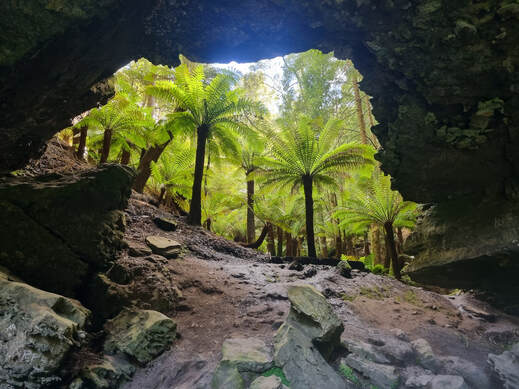 John 3:1-17 Cailin Ciuin (The Quiet Girl) is a 2022 Film in Gaelic about a girl who stays the Summer at the home of her mother’s cousin and when she returns home wants to live with the mother’s cousin and her husband. We can’t choose the family we are born into but if we want to we all can choose to be part of the family of Christ. Nicodemus eventually made that life changing choice. Nicodemus is mentioned three times in the Gospel of John. Nicodemus had a very important position of leadership in the Jewish religion. Nicodemus was a Pharisee and a leader of the Jews. The word Jews here means the group within Judaism that was most opposed to Jesus and who were trying to kill him. So he was a leader within this group. In John 3 Nicodemus comes to Jesus at night. In John 7 after the religious leaders had tried to arrest Jesus, Nicodemus spoke up among the group who were plotting the downfall and death of Jesus. He asked, "Our law does not judge people without first giving them a hearing to find out what they are doing, does it?” In John 19 after Jesus was crucified Nicodemus came with Joseph of Arimathea to prepare Jesus' body for burial and they took Jesus' body, wrapped it and laid Jesus in the tomb. Three times it mentions that Nicodemus was the one who came to Jesus at night. John 19 tells us that Joseph of Arimathea was a secret disciple as he was afraid of the Jews. This is probably why Nicodemus came at night too, under the cover of darkness, in secret to meet with Jesus, whom his group regarded as the enemy. Throughout the gospel we see a movement by Nicodemus from the safety and secrecy of the cover of darkness, to raising a question amongst his peers, a question that caused his pears to question his knowledge of their tradition, to finally coming out into the light, fully exposing himself as a follower of Jesus at his crucifixion, touching and carrying the body of a condemned criminal. In these three snapshots we see the gradual conversion of Nicodemus. He hears the gospel, he is challenged by the words of Jesus that ‘no one can see the kingdom of God without being born from above.’ Nicodemus considers it. He counts the cost and he demonstrates his faith by physically taking up the body of Jesus and placing it to rest in a tomb. Often evangelists expect their hearers to immediately respond to the words of John 3 which say one must be born again and For God so loved the world that he gave his only Son, so that everyone who believes in him may not perish but may have eternal life. We push for a decision, for us to choose now. But a deep and lasting conversion, a life of truly following Jesus requires one to deeply consider Jesus' call to discipleship, to be opened to the kingdom of God, to count the cost and to follow not just with the mind or out of fear or for selfish gain but with one's whole being, heart, mind, soul and strength. Nicodemus truly came out from the shadows into the clearness of day when he stepped out from the crowd to bury Jesus. His faith was fully formed in him and action flowed together with faith as one. All his peers would have seen him or heard what he did. I imagine he lost his place as a leader, perhaps he was no longer welcome among them or in their Synagogues or at the Temple. We don't know what happened to him. We just have these three snapshots. Our faith is never some private thing that we believe in our heads, hidden from others. Real faith is always lived out in our lives among other. Real faith is not just lived in church or theological college or the Presbytery but in every part of our lives in every time and place, night and day, all year round. Jesus challenges Nicodemus in John 3: 21 to come into the light. Like the quiet girl (Cailin ciuin), none of us can do anything about the family we have been born into but we can choose to be born again or born from above. We can choose to come into the light. We can choose to live by the Spirit. This is entering into eternal life. As we follow Jesus we begin to see life differently. We see People differently. We see God differently. We begin to change and be changed. We begin to see from above or from a different place a different perspective and not only see but be different to who we were. We are now children of light, bearers of light. The darknesses of the world are revealed to us. We can no longer participate in dishonesty and injustice. We are light. 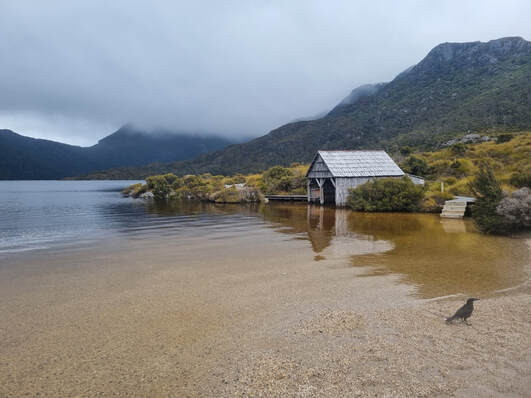 Isaiah 53:1-12 Who is our neighbour? In preparing for mission planning, here are three important questions to ask: The first question is: Who are we? This question is about It is about our identity. The second question is: What does God want us to do? This question is about our purpose. The third question is: Who is my neighbour? This is a question about our context. With any Scripture text or with any church activity we can ask these questions and reflecting on these questions may help us to focus on being an alive, living, relevant and authentic church. In Isaiah 58:3 the people ask of God, "Why do we fast, but you do not see? Why humble ourselves, but you do not notice?" The answer from God says, Look, you serve your own interest on your fast day, and oppress all your workers. Look, you fast only to quarrel and to fight and to strike with a wicked fist. Such fasting as you do today will not make your voice heard on high. Their fasting is selfish, they are doing it for themselves. At the same time they are doing all these religious observances they are exploiting their workers and they fight and are violent. They fast and fight. They pray and fight. What kind of praying is that, that when it finishes people begin to fight? Things haven’t changed that much since those days. How often fights break out in our churches today too. Their religion is focused on themselves- a me and my God kind of relationship. A religion without any connection to their neighbour. A religion that does not include their neighbour. A religion that does not recognise their neighbour. Is not this the fast that I choose: to loose the bonds of injustice, to undo the thongs of the yoke, to let the oppressed go free, and to break every yoke? Is it not to share your bread with the hungry, and bring the homeless poor into your house; when you see the naked, to cover them, and not to hide yourself from your own kin? Then your light shall break forth like the dawn, and your healing shall spring up quickly; your vindicator shall go before you, the glory of the Lord shall be your rear guard. (Isaiah 58:6-8) In Matthew 5:17 Jesus says, Do not think that I have come to abolish the law or the prophets; I have come not to abolish but to fulfil the law. In Matthew 22:35-40 A lawyer asked Jesus a question to test him. “Teacher, which commandment in the law is the greatest?” Jesus said to him, "You shall love the Lord your God with all your heart, and with all your soul, and with all your mind.’ This is the greatest and first commandment. And a second is like it: You shall love your neighbor as yourself.’ On these two commandments hang all the law and the prophets.” In Judaism whether back in the time of Jesus or even today this is a very important question that Jewish theologians have wrestled with. For some a neighbour has meant a Jew, for others a neighbour only a good Jew. For some gentiles are not considered as neighbours, for others Muslims and Christians are considered as neighbours as they all claim to descend from Abraham. For others everyone is our neighbour and for others everything is our neighbour: people, animals, every living thing, all creation is our neighbour for we are called to love all creation as we love ourselves. To care for all. In Luke 10:25-37 - Another expert in the law asked Jesus, And who is my neighbour?” And in response Jesus told a story we know as the parable of the Good Samaritan. Jesus finished his parable by asking the lawyer, “Which of these three, do you think, was a neighbour to the man who fell into the hands of the robbers?” and the lawyer replied, “The one who showed mercy.” Jesus said to him, “Go and do likewise.” What about you? Who is your neighbour? Are there people we don’t consider as being our neighbours? Our neighbours may not be Christians, they may not worship like us, they may have different beliefs to us, but there are lots of things we may have in common. We have common fears. We are worried about our children. We are worried about not being able to afford to rent or buy a house to live in. We are worried about our children and their future. We are worried about climate change and the future of the world and even if we are not worried about it we know our children are really worried about it. We are worried about violence against women, whether we will be safe in our own homes or out in the streets at night. We are worried about employment. We are worried about war. We have so much in common. When I talk to people from different religious backgrounds and people who do not identify as religious, as I get past their beliefs of being right or trying to prove others wrong I find that they are concerned about living, about making this a better world, a just and fair world, a kind and caring world. When we go beyond the pressures of capitalism and consumerism I find people just want to live in harmony with others. This is where Jesus leads us, out amongst our neighbours, to others, welcoming strangers, beyond all that divides people from people and all that divides people from creation. I think God is looking for us to be different in this world, to be prophets, visionaries, neighbours. But if we are just seeking things for ourselves we will never be part of how God is in the world and is changing the world. We will never be the light of the world. We will never be the salt of the earth, we will never be neighbours. Asking these questions is very important. They are all connected. When we ask who am I? We begin to uncover what it is to love myself, to love who I am as I am, and if we can love ourselves as who we are and as we are, maybe we can begin to love our neighbour for who they are and as they are. 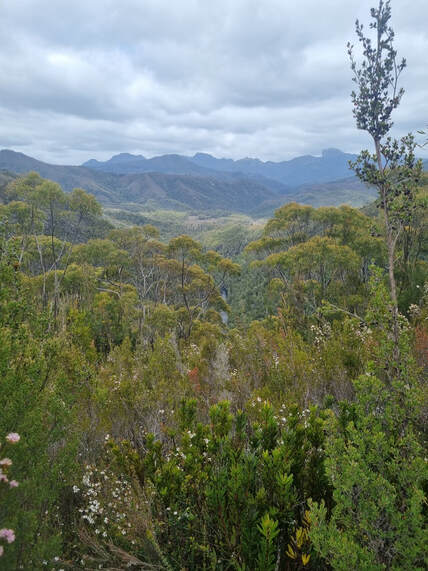 What does the Lord require of you but to do justice, and to love kindness, and to walk humbly with your God? (Micah 6:8) Blessed are the poor in spirit, for theirs is the kingdom of heaven (Matthew 5:3) Have you ever asked God, what do you want me to do? Before we do anything for God or in God’s name, we need to know that God is love, we need to experience God as love. If we do not know God as love, if we do not experience God as love, we will never know what God truly wants of us and we will most likely do things in God’s name that are far from God’s character and will. We need to know and experience God as love before we ask the question what do you want me to do? And it is an ongoing question, a question that we continue to ask within a relationship of love. If we are not following in love, we will be driven by all sorts of harmful things that can lead to the hurt and harm of others. If we are not following in love we can be driven by such things as the thirst for power, or greed, the hunger for possessions and money, or prestige, privilege and place or by jealousy, or bitterness, unforgiveness, hatred, fear, revenge and violence. We end up doing things our own way or the way others want us to do things but perhaps not what God may want us to do. When we know and experience God as love we will seek to do justice, and to love kindness, and to walk humbly with our God. To know love and to live in love is to decentre oneself and find fulfillment in loving the other. Love one another as I have loved you – John 13:34. When we put God at the centre of our life we put love at the centre of our life and when we put love at the centre of our life we put God at the centre of our life. A liberating love for the environment, a liberating love for the poor requires a de-centring of self so that love may flow. Just as water always finds its way to the lowest point so love always flows down. God, like water, is found flowing down among the cracks and crevices and depths of human suffering and poverty. Though he was rich, Jesus humbled himself and became poor and lived among us. French Sociologist and Theologian Jacques Ellul says that ‘Love leads us to a deeper understanding of reality. ’A person that has tasted God’s love will have their eyes opened to the poor, to the injustices of this world and that is where their love will flow. Jesus declared that the kingdom of God is good news for two groupings of people: The first grouping is made up of people who are poor and who are meek, those who are oppressed and downtrodden by others, those who hunger and thirst for justice, those who have lost everything and are paralysed by grief. The second grouping are those who will walk his path and change the way things are in the world, they are people who show mercy, who live a life of total honesty, with no falsehood or pretence, those who are peacemakers, those who are persecuted for trying to follow the ways of Jesus and those who are placed alongside the oppressed because of their attempts to change things. Things are upside down in the world. To do justice is to turn things the right way up. We can see the evidence of greed and corruption and the misuse of power in the destruction of the environment and in the growing numbers of people who becoming poor. Just as scientists have been warming that global warming has been caused by human actions so too poverty results from the actions of other human beings. The beatitudes can help us to see what it means to do justice, to love kindness and walk humbly with our God. They give us what Jon Sobrino calls the Christian spiritual mindset. This is how we see things. Everything is turned upside down in the beatitudes. "Blessed are the poor in spirit, for theirs is the kingdom of heaven. "Blessed are those who mourn, for they will be comforted. "Blessed are the meek, for they will inherit the earth. "Blessed are those who hunger and thirst for righteousness, for they will be filled. "Blessed are the merciful, for they will receive mercy. "Blessed are the pure in heart, for they will see God. "Blessed are the peacemakers, for they will be called children of God. "Blessed are those who are persecuted for righteousness' sake, for theirs is the kingdom of heaven. "Blessed are you when people revile you and persecute you and utter all kinds of evil against you falsely on my account. The poor in Spirit, the meek, those who hunger and thirst for righteousness and those who mourn are those crushed by the powers of this world. In the kingdom of heaven, it is the poor who are lifted up as the kingdoms and powers of this world are turned upside down. So, we always need to see with the eyes of love. Without love we participate in the violent loveless ways of the kingdoms of this world. But with love, the kingdom of heaven comes. As followers of Jesus, we are the blessed who find ourselves not among the rich and powerful but among the poor and despised peoples of this world. We rejoice and are glad not because everything has already changed to the way it should be but because a different reality is already among us; the kingdom of heaven is at hand, the kingdom of life and love is around and about us, falling like rain, flowing down into the depths of human life and raising the poor, like an ancient shipwreck rising from the bottom of the ocean floor and returning it to its place on the waves, to live again. When we think of mission and we ask what does God want us to do? Our asking this question must always be a question from the heart, a response of the heart. Any response that does not come from a heart of love will quickly become one that seeks to control and dominate. It won’t last. It will become divisive and end up doing the opposite of the will of God. Ongoing constant reflection is crucial. Reflect Act Grow. Action must always flow from reflection and action must always be followed by reflection - a constant process. What does God want us to do? To disrupt the world order, to turn things upside down. What does the Lord require of you but to do justice, and to love kindness, and to walk humbly with your God? And we will be blessed in the heavenly calling of doing justice, loving kindness and walking humbly with our God. 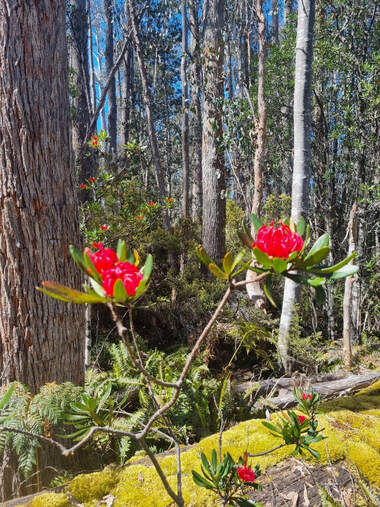 When we celebrate Holy Communion, we not only have communion between us and God, or between me and God, but communion with each other. Before we come to the table, we prepare ourselves to approach God. When celebrating Holy Communion in the Methodist Church tradition the service begins with the Prayer of Humble Access including the words derived from the Syrophoenician Woman's encounter with Jesus while he was having a meal in a house (Matthew 15:21-28) - 'We are not worthy even to gather up the crumbs under your table.' We have been taught to reverently approach God, to reverently approach the table and to reverently receive the bread and wine that is offered to us as the body and blood of Christ but what about reverence for each other. God is not just present in the bread and wine but also in those who gather with us. Gathering to celebrate Holy Communion is an opportunity to approach one another with the same humility and awe with which we approach God. John O 'Donohue says, 'The way we are present to each other is frequently superficial' (p.24 of his book Beauty). He says we have become more interested in connection than communion. We lose the rich potential for friendship and love remains out of reach. We can’t just fix our eyes upon Jesus without approaching the people around us. When we approach each other with reverence something awakens between us - the hidden beauty of God is revealed. This awareness is of a much deeper connection than we could have thought. This connection is alive with grace and mercy, kindness and compassion, understanding and empathy. An awareness that we are one. It is truly communion. When you next approach the table remember that we also approach one another. Prayer of Humble Access We do not presume to come to this your table, merciful Lord, trusting in our own righteousness, but in your manifold and great mercies. We are not worthy so much as to gather up the crumbs under your table. But you are the same Lord whose nature is always to have mercy. Grant us therefore, gracious Lord, so to eat the flesh of your dear Son Jesus Christ, and to drink his blood, that we may evermore dwell in him and he in us. Amen. 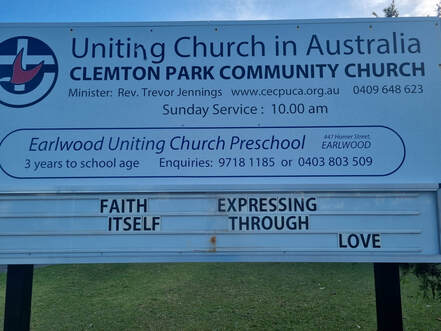 This is the first in a series of questions to contemplate as we prepare for some mission planning Who am I? If someone asks us, who are you? One common response is to respond with our name. I am Trevor Jennings. Then if they prod a bit more, we might say I am a Uniting Church minister or I am a forklift driver, or I am a mother or I am a daughter, or I am Australian, or I am Tongan, or I am from Clemton Park. We see our identity tied to work, relationships, education, religion, sexuality, ethnicity etc. If we think someone is judging us in some way or they stay something condescending about us that hurts, we may say to ourselves, they don’t know me, they don’t know who I really am. Sometimes we like to tell others, I am an introvert, or I am an extrovert, to explain ourselves and our behaviour, or we may find comfort in a psychological diagnosis. From our birth we forge our identity from the world around us and our ideas of ourselves are shaped by our experiences and education, by those who raise and influence us, and increasingly through social media etc. These are all external environmental factors in our identity formation and of course there is a continuous internal dialogue processing it all. When we are not happy with who we are or who we think we have become, we often seek help. Sometimes the help we seek can be far from helpful, for example if we try to become someone else through drugs or alcohol. Sometimes we might seek help through counselling to understand ourselves or to change our thinking about ourselves or just to find ourselves. But do we ever know who we really are? What is our true self? Likewise, when it comes to mission planning in the church and we ask the question, who are we; we tend to answer with a set of beliefs – we are the body of Christ, we are followers of Jesus, we are the Uniting Church, we are a bible believing church, we are inclusive, we are a welcoming congregation etc. Is what we say about ourselves and what we say we believe, really who we are? Could asking ourselves, who am I, be a deeply spiritual question, a spiritual search in itself? Richard Rohr says, for Christians who have gone into their own depths they have uncovered an indwelling presence -a deep loving ‘yes’, God immanent, the Holy Spirit within, our deepest truest self, God the very ground of our being’. He says some mystics have described this presence as “closer to me than I am to myself” or “more me than I am myself” or as Thomas Merton called it -the true self. Contemplate the following – ‘this presence is more me than I am myself’. In his book ‘Beauty’, John O’Donohue says that faith is both an attraction to the divine and a response to God’s beauty and that ‘Love changes the way we see ourselves and others’ - ‘love turns up the hidden light within a person’s life’ and that ‘the beauty of God increases and deepens our own beauty. Why are the questions ‘Who am I?’ and ‘Who are we?’ so important to any attempt in making a mission plan? How may this question shape what we do and how we do it? 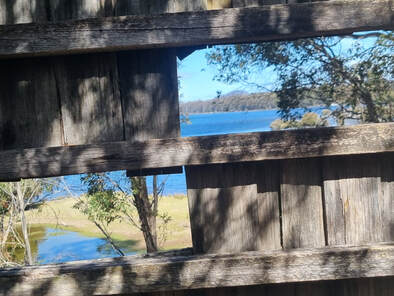 Matthew 2:13-23 When Mary and Joseph got to Bethlehem they had already been pushed around by the dictates of politics and power. They had to leave their home while Mary was heavily pregnant and walk for days just to be registered in the census, a means by which taxes were worked out and imposed. Their fleeing to Egypt was another part of that forced journey. We all live under the dictates of politics and power, some negotiating it better than others depending on our race, ethnicity, sex, gender, sexuality, privilege, education, wealth, place of birth, religion, health etc. Some learn to comply to the systems or use them to their own advantage, others rebel seeking to find an elusive freedom and others sink, suffer, and just try to survive. The biblical stories are told within the stories of politics and power, of how faith was forged and developed and lost and found again. Today’s story tells how faith was carried and protected, vulnerable and so fragile. As Mary and Joseph travelled to Egypt and then on to Nazareth, they literally carried their faith with them, in the form of their child and all the hopes for the world held in that baby. All the while avoiding the murderous and jealous powers that slaughtered all the children under two years of age around Bethlehem. What is the faith that you carry like? Is it strong and robust, sure and solid, or are you a bit more unsure about it? Perhaps what you carry is a mixture of faith and doubt? Can you imagine the doubts that plagued Mary and Joseph along the way as they fled trying to find shelter and food and work to survive, to keep their baby alive? Why is this happening to us? Did an angel really appear to us? Is our child really the Saviour of the world? Together they carried a mixture of faith and doubt held together with the threads of love. When we talk about keeping the faith we often mean holding on to our beliefs through thick and thin. We pull them together into creeds which we recite; creeds that reinforce our beliefs, which become sanctuaries from doubts, exercises to go through in our minds, like building muscles to become strong in the faith and we hang on to them against all the temptations and trials we go through. It can be exhausting - such a battle raging in the mind. Faith is not just what we believe in our minds, what we have learned in church, Sunday school or Scripture classes in school, or even in Theological colleges. Faith is lived through our whole body, through our hands and feet in actions, in our words and on our faces and gestures. Faith needs doubts to develop. Brian McLaren says that doubts are not the opposite of faith but rather complement each other. Doubts are necessary for a life to be lived with authenticity and honesty. If we ignore or avoid our doubts, if we don’t engage with our doubts, we may never grow in our faith. We may never grow into the fulness of love or discover life in its fulness, perhaps not experience a deepening awareness of God’s presence in all things. Paul, in first Corinthians 13:13 says, And now these three things remain: faith, hope and love and the greatest of these is love. No doubt for Mary and Joseph their journey was not driven by some well articulated statement of faith or creed of beliefs but by love: love for their child, love for each other, love for the world; more instinctual than intellectual, of necessity rather than choice. In Galatians 5:6b Pauls says, … the only thing that counts is faith working through love. Can there really be faith without love? I am coming to see that faith for me is living because of a dream, a mystery, a hope beyond comprehension and articulation, a glorious vision of the imagination, a longing, a thirst, an unknowable knowing; God revealed in a baby born to two loving faithful parents a long time ago. Above all faith in Jesus is a life that is lived in love.  Matthew 3:1-12 Sunday 4 December 2022 Advent 2 "The voice of one crying out in the wilderness: 'Prepare the way of the Lord, make his paths straight.'" The voice of one calling out in the wilderness Julie and I spent the last two weeks travelling around Tasmania. Tasmania is an incredibly beautiful place. At times Julie described it like heaven, the beauty kept rolling out like an endless dream. We spent a lot of the time walking along beaches or on bush tracks, beside rushing rivers, under gushing waterfalls, around stunning lakes, through lush valleys and over steep majestic mountains, accompanied constantly by beautiful birdsong. While walking in silence with only the sounds of the bush, I found that lots of memories and thoughts came up: things and people that I had not thought about for a long time. I suppose I was alone with my thoughts rather than being distracted by so many things that happen in daily life. Some of these memories can be painful, but I found that they seemed to fall harmlessly away as I walked on. We walked through many National Parks. At one national park – the Franklin-Gordon Wild Rivers National Park I came across the following information notice. It stated: Aboriginal land… Not wilderness The Franklin River has only been seen as a wilderness since the arrival of Europeans. Before this, Tasmanian Aborigines had long viewed this land as something special – but not as wilderness. The land has been the foundation of their culture and its laws and traditions for over 60,000 years. For today’s Aboriginal community, its significance is just as strong. Aboriginal sites still found in this area are evidence of these close links with the land and allow today’s Aborigines to celebrate the continuation of their culture. There were three obvious things we noticed that tarnished our view of Tasmania as heavenly. The first was the large numbers of animals killed on the road: wallabies, kangaroos, paddy melons, echidnas, wombats and Tasmania Devils, all endangered species littering the roads, giving lots of food for scavenging birds. The second obvious thing was the destruction of the environment through mining and logging. I had last been in Tasmania forty years ago and did not want to go to Queenstown, but was surprised how much it had changed over that time. Corrosive Sulphur fumes from copper mine smelters had combined with endless rain to erode the soil from surrounding hill sides and leave it looking bare like the moon. It was good to see some recovery happening but still had enormous denuded areas of beige-brown barrenness. The greed of rich entrepreneurs was everywhere to be seen not just n the recorded history but before our eyes. The third obvious thing was the cruel convict history. Everywhere there were gaols and bridges and other government buildings and houses built by convict labour. Poor people, many from Ireland, transported to the other end of the world for minor crimes or political protest never to see loved ones again or the land of their youth. What was not obvious was Aboriginal sites. At recently renamed Leeawuleena (Lake St Claire) National Park an information sign stated – When they walked peaceably into Hobart town in January 1832, all that was left of the Big River nation, which had once numbered 400 to 500 people, were 16 men, 9 women and one child. After defending their country for nearly 30 thirty years, the Larmairemer people expected the ’peace and plenty’ promised them by the… (Government). Instead they were shipped to Flinders Island- far away from their homeland. Having read this, I could almost hear a voice calling out in the wilderness, a voice begging to be heard for over 234 years. This is home not wilderness. It seemed that the land was calling out, calling for justice for both land and dispossessed people. Wilderness and Voice Advent is a spiritual journey preparing us for Christmas but more than that, opening us to see the whole world in a different way, in the way of Jesus. This spiritual journey leads us through the wilderness. However, for us urban dwellers most of our spare time will probably lead us through the shops rather than to places where we can be alone with the world, with ourselves, our thoughts, and open to the voice of God. As I read the Scripture passage for today and reflected on my ‘wilderness’ experience, I thought of that sign which said ‘Aboriginal land…not wilderness’ and I reflected on one of the main stories in Australian news this week which was about A Referendum on an Indigenous Constitutional Recognition through a Voice to Parliament and how the first peoples of this land are calling out for a voice, to be heard at the highest level, in the constitution and laws of this country. Our local Federal member and Minister for Indigenous affairs Linda Burney gave an impassioned speech in parliament this week. She said, “Not everyone can have their voice heard. That is why we need a voice to Parliament. You learn more by listening than by talking and an Aboriginal and Torres Strait Islander voice is an idea whose time has come. We want to take Australia forward for everyone and will work with anyone who wants to take this journey forward to a better future.” When John’s voice is raised in the wilderness, he is not just calling us to repent of our own individual sin, but our collective sins against the beautiful world God has created and against the first nations of this land. As we listen for the voice of the baby Jesus crying in his manger let us listen closely to the cries for justice and inclusion, and for land, sea and skies calling out for us to repent of our ways and take Jesus’ way, to make God's path straight. |
AuthorMinister of Campsie Earlwood Clemton Park Uniting Church Congregation Archives
March 2024
Categories
All
|

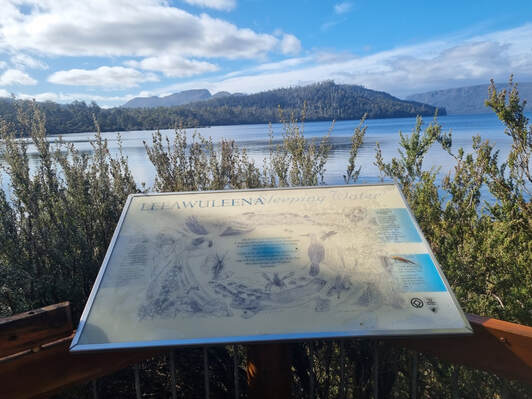
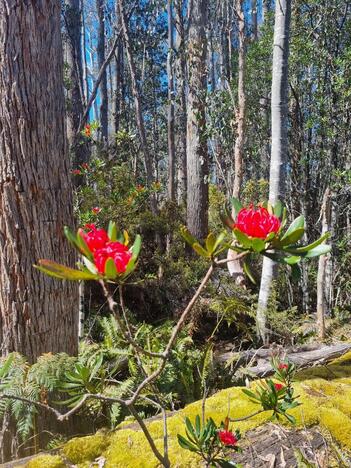
 RSS Feed
RSS Feed
